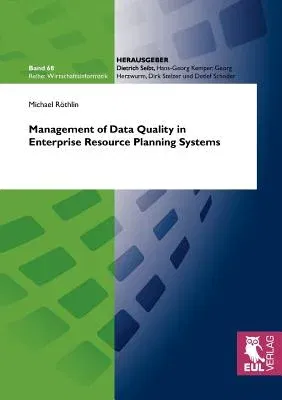On the one hand, Enterprise Resource Planning (ERP) systems promise to
provide "all-in-one" application functionality to support business
processes and to cover all the information needs of a wide range of
organizations, from the operational to the executive levels. On the
other hand, despite their success in the marketplace, ERP systems are
exposed to a range of risks which endanger the quality of the data they
process. In this research, the author assesses ERP design and
implementation principles in light of data quality concerns, presents
evidence from the field of daily ERP practice, and provides guidelines
on how organizations can best handle data quality by integrating data
quality considerations into existing ERP system implementation and
business management models. The usage of general purpose data quality
"add-ons" such as address edit controls is discussed in the context of
ERP systems, and the role of dedicated master data management
extensions - handling data exchange between business partners - is
reviewed. Successful data quality management in an ERP context requires
awareness, robust process design, and preventive measures. As the author
shows, proven concepts described in the data management and (data)
quality literature can be - and need to be - applied to the context of
ERP systems, in order to fully exploit their potential.


